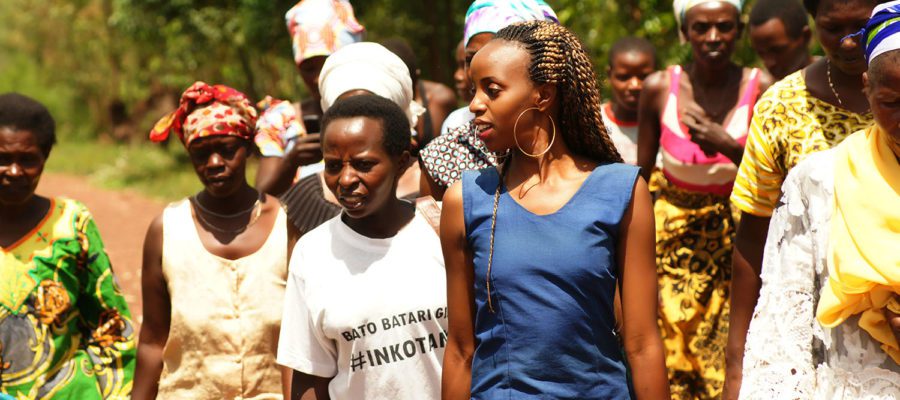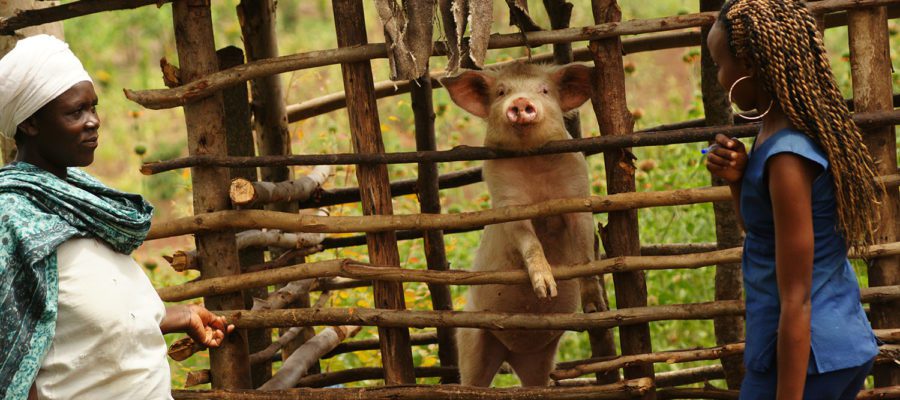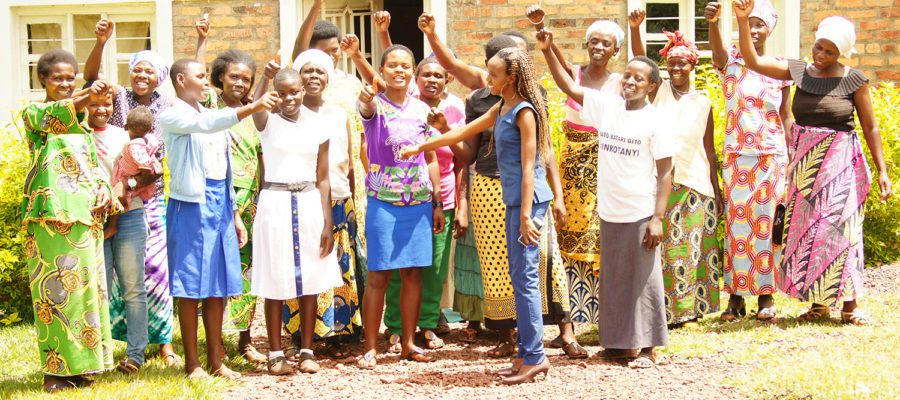Marie Clarisse Mfurayabo
The call to empower teen mothers
Laetitia
Economic change through agricultural innovation
When Laetitia Umubyeyi first got involved with DOT Rwanda in 2016, she didn’t think of herself as a social entrepreneur. She didn’t even have a business idea. She had a background in electrical engineering, not business, and was an instructor at a vocational training centre.
Yet she came to see her inexperience in business as an asset – it made her open to all kinds of possibilities.
“I am among those lucky young women who did not have a structured business idea. As soon as I was introduced to social innovation at DOT Rwanda, I discovered an opportunity and potential customers and how I would reach them,” Laetitia says. “The process has helped me to build my project.”

Entrepreneurial and socially-minded, Laetitia thought about what she could do to create a livelihood for herself while also having a positive impact in her community in Kirehe District, particularly for vulnerable women. She arrived at the idea of starting a pig farm, and empowering other women to do the same.
A DOT youth leader, delivering social innovation training in her community, introduced her to the social impact model canvas, a tool to help her conceptualize her idea.
“The exercise took me a bit more time thinking, designing, prototyping and testing to ensure my pig rearing project is feasible and efficient. DOT’s programs offered me an opportunity to analyze my social enterprise’s threats and weaknesses and set measures,” she says. “Otherwise, I could quit my business like other youth who get discouraged at the initial phase.”
After completing DOT’s social enterprise workshops, Laetitia launched her pig farming initiative. She invested in 25 piglets, and gave them to poor women in Kirehe District. One pig is able to produce an average of 28 piglets a year. Recipients will give half of their piglets back to Laetitia, who will then give some of these piglets to other women to allow them to start their own pig farms. Laetitia will sell the rest to fund this model and provide an income for herself.
Eager to provide women in her community every opportunity for success, Laetitia works with experts in pig farming to mentor the women on how to care for their animals.
“She encourages us to use the pig manure on our land to help enrich the soil and grow more vegetables to improve our children’s diet,” says one woman who is proud to have begun raising pigs.

Laetitia’s social enterprise relies heavily on technology. In her DOT training, she learned how to use the Internet to conduct market research, and it has also been a valuable source of technical information about pigs and piggeries.
Laetitia continues to learn and grow as a social entrepreneur. She competed in DOT Rwanda’s business competition, emerging the winner in Kirehe District and taking home a cash prize to scale her project. After her success in the competition, district leaders took note of Laetitia’s initiative, impressed by her efforts to alleviate poverty.
Laetitia remains focused on transforming communities in her region. She plans to reach more than 50 young people and women, to help them start their own farming operations, and she wants to start a pork processing facility in her district, too.

In no time, Laetitia has become a respected social innovator in her community, with the confidence, skills and knowledge to identify and address the needs in her community.
“As soon as I was introduced to social innovation at DOT Rwanda, I discovered an opportunity and potential customers and how I would reach them.”
Read more inspiring stories
like Laetitia.